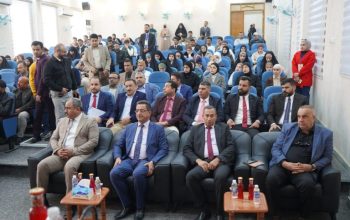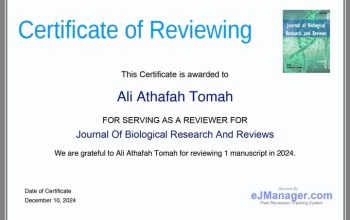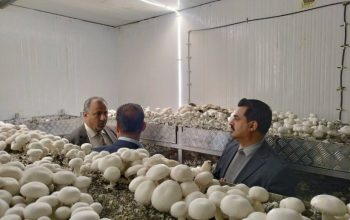A delegation from the World Food Program visited the College of Agriculture and met with the Dean of the College of Agriculture (Assistant Professor Dr. Durgham Sabih Karim), the Administrative and Scientific Associate, the Head of the Plant Protection Department, and the teaching staff. The visit included a discussion of the frameworks of joint scientific cooperation between the College of Agriculture and the United Nations World Food Program (UNWFP) and the most important… The projects that will be implemented by the program. The head of the Plant Protection Department (Dr. Farhan Jassim Muhammad) introduced the delegation to the College of Agriculture, its staff, and the most important goals of the College of Agriculture. Then the visit included a lecture given by the teacher in the Plant Protection Department (teacher Karrar Akram Kamel) about the indicators of the waste problem in Iraq 2015. -2022.
The most important topics dealt with some global and local statistics on the waste problem since the year 2015, which focused on the quantities of waste generated in Iraq and Maysan Governorate, measured in tons annually. The rate of regular waste production per capita at the world level was also reviewed and compared to the rates of daily waste production per capita in Iraq and Maysan.
The lectures also touched on the most important strategies used in waste management, which are graded as follows: Prevent, Reduce, Reuse, Recycle, Dispose, and some examples that can be adopted within the above strategies to manage the waste file in Iraq were reviewed in cooperation with the United Nations World Food Program (UNWFP). The lecture also included a presentation of a case study of the waste produced by the scientific departments in the College of Agriculture and the results of separating this waste according to the classification of organic and inorganic waste, including plastic, glass, etc., during which discussions took place between the visiting delegation and the lecturer, where they expressed their admiration for what the lecture covered about finding solutions to waste and recycling it. The delegation then conducted a field visit to one of the wastewater sites within the college and discussed the possibility of benefiting from it in restoring agricultural systems and using it in restricted and unrestricted environments to treat it in cooperation with the program.






